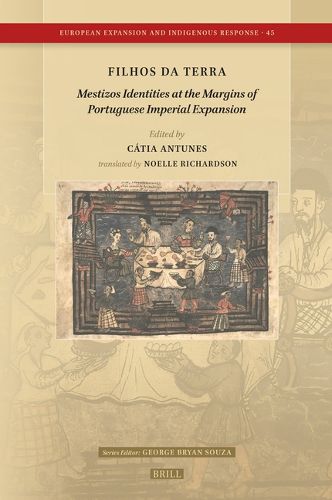Readings Newsletter
Become a Readings Member to make your shopping experience even easier.
Sign in or sign up for free!
You’re not far away from qualifying for FREE standard shipping within Australia
You’ve qualified for FREE standard shipping within Australia
The cart is loading…






Filhos da Terra narrates the history over time of the so-called 'Portuguese communities' living outside the boundaries of the Portuguese Empire but identified locally and by other European empires as 'Portuguese'. Concepts such as 'tribe', 'diaspora', and 'society of metissage' have been widely used to define these groups.
In Filhos da Terra, Antonio Manuel Hespanha sets the stage to analyse a process of creolization that followed the Portuguese maritime expansion and consequent colonial buildup after 1415 and until 1800. This translated edition of his work opens up the possibility for future critical scholarly and public comparative discussions about diversity, identities, and identifications in the context of European empire building.
Contributors are: Catia Antunes, Zoltan Biedermann, Tamar Herzog, Noelle Richardson, Sophie Rose, and Angela Barreto Xavier.
$9.00 standard shipping within Australia
FREE standard shipping within Australia for orders over $100.00
Express & International shipping calculated at checkout
Filhos da Terra narrates the history over time of the so-called 'Portuguese communities' living outside the boundaries of the Portuguese Empire but identified locally and by other European empires as 'Portuguese'. Concepts such as 'tribe', 'diaspora', and 'society of metissage' have been widely used to define these groups.
In Filhos da Terra, Antonio Manuel Hespanha sets the stage to analyse a process of creolization that followed the Portuguese maritime expansion and consequent colonial buildup after 1415 and until 1800. This translated edition of his work opens up the possibility for future critical scholarly and public comparative discussions about diversity, identities, and identifications in the context of European empire building.
Contributors are: Catia Antunes, Zoltan Biedermann, Tamar Herzog, Noelle Richardson, Sophie Rose, and Angela Barreto Xavier.